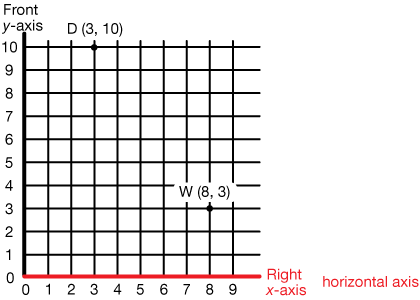H
half hour
30 minutes.
half/halves
2 parts of a whole that are the same size.

pages 250–252, 254–256, 258, 270–279
hemisphere
Half of a sphere.
hexagon
A polygon with six sides.

page 295
hexagonal prism
A prism with bases shaped like a hexagon.
(See also prism.)

page 318
horizontal axis
In a coordinate grid or graph, the x-axis. The axis that extends from left to right.

pages 4–5, 10, 22
hour
60 minutes.
pages 68, 96–97, 152, 154, 300–302
hour hand
The small hand on a clock that shows the hour.
pages 96–97, 300
hundreds
Our number system is based on ten digits (numbers). Using the ten digits, a number can be written. The place where each number is written tells its value. The third place or column from the right is called the hundreds place. Ten groups of ten equal one hundred. For example, in the number 762, the 7 represents the quantity of seven hundreds or seven hundred. Use 7 flats to show seven groups of one hundred or 700.

pages 71–77, 78–83, 84, 130–132, 168–183, 234–236










